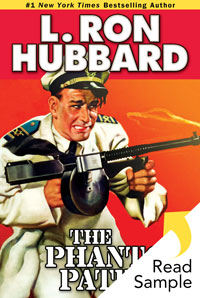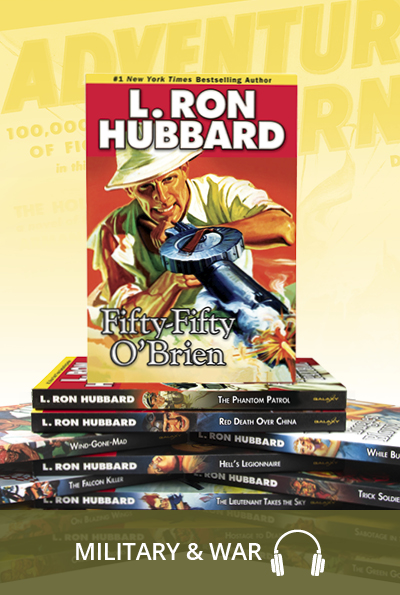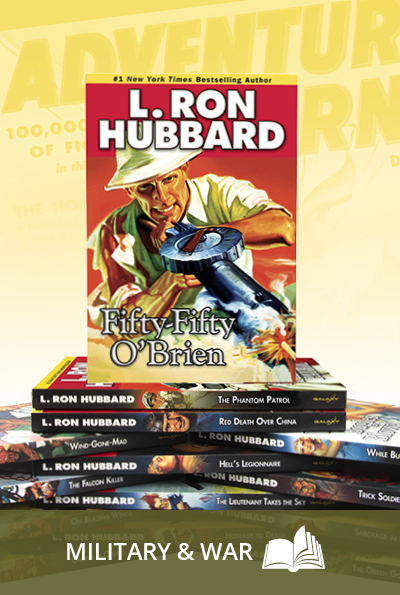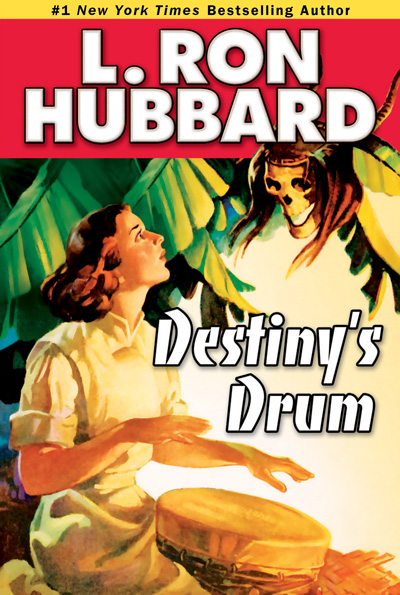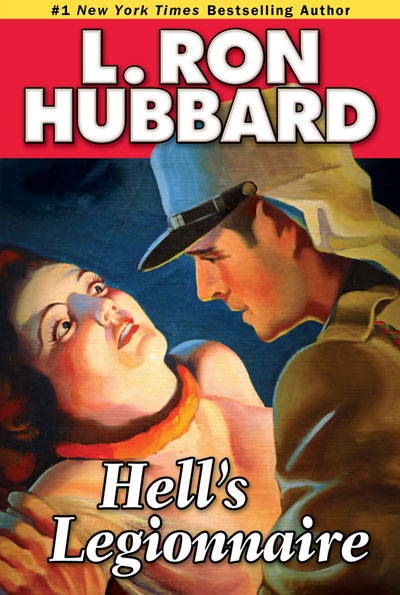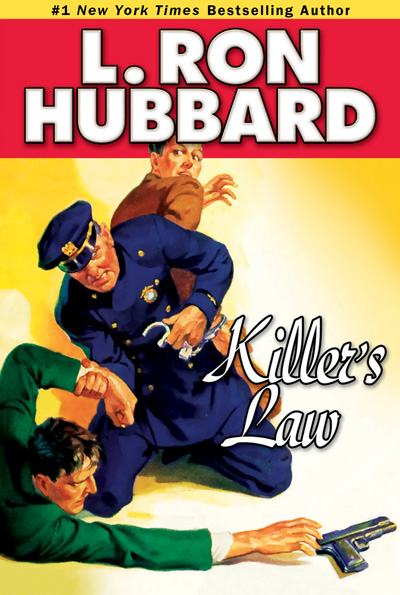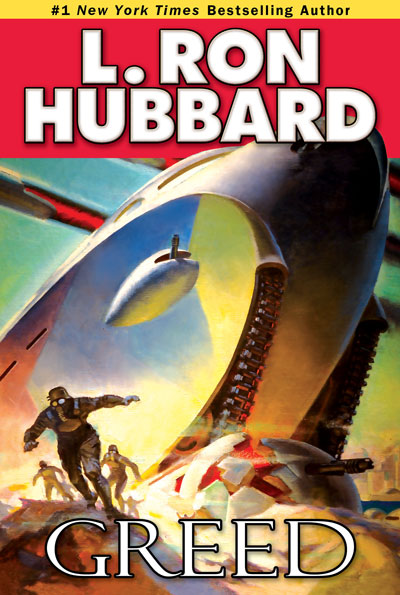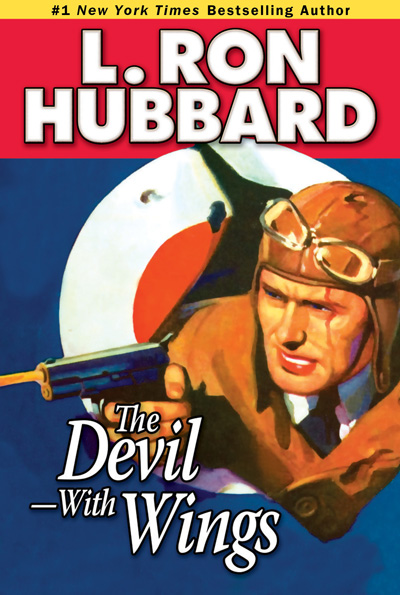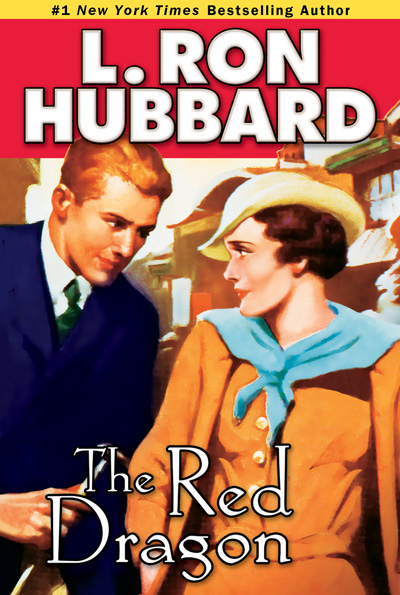The Phantom Patrol Glossary
Stories from the Golden Age reflect the words and expressions used in the 1930s and 1940s, adding unique flavor and authenticity to the tales. While a character’s speech may often reflect regional origins, it also can convey attitudes common in the day. So that readers can better grasp such cultural and historical terms, uncommon words or expressions of the era, the following glossary has been provided.
abeam: off to the side of a ship, especially at a right angle to the middle of the ship’s length.
after hatch: an opening in a boat’s deck, toward the stern, which is fitted with a watertight cover.
aileron: a hinged flap on the trailing edge of an aircraft wing, used to control banking movements.
anchorage: that portion of a harbor, or area outside a harbor, suitable for anchoring, or in which ships are permitted to anchor.
anvil chorus: in reference to a piece of music, “The Troubadour,” by Italian composer Giuseppe Verdi (1813–1901), that depicts Spanish gypsies striking their anvils at dawn and singing the praises of hard work, good wine and their gypsy women.
astern: in a position behind a specified vessel.
banshee: (Irish legend) a female spirit whose wailing warns of a death in a house.
barratry: fraud by a master or crew at the expense of the owners of the ship or its cargo.
binnacle: a built-in housing for a ship’s compass.
Borneo: the third largest island in the world, located in southeastern Asia, in the western Pacific Ocean to the north of the Java Sea.
bosun: a ship’s officer in charge of supervision and maintenance of the ship and its equipment.
bucko: young fellow; chap; young companion.
bulwark: a solid wall enclosing the perimeter of a weather or main deck for the protection of persons or objects on deck.
Cajun: a Louisianan descended from French-speaking immigrants from Acadia, a former French colony in Canada.
cameo: a small piece of sculpture on a stone or shell having two layers of different colors, the figure being cut in relief in one layer, and another serving as background.
chronometer: an instrument for measuring time accurately in spite of motion or varying conditions.
collar ad: collar and shirt advertisements by J. C. Leyendecker (1874–1951), an illustrator and entrepreneur who defined an era of fashion in the early twentieth century. He painted strong, athletic men and created long-running characters for the Arrow collar man ads (Arrow was a brand of shirt), as well as many others.
Colt: an automatic pistol manufactured by the Colt Firearms Company, founded in 1847 by Samuel Colt (1814–1862) who revolutionized the firearms industry with his inventions.
coolyhow: a drink.
cordite: a family of smokeless propellants, developed and produced in the United Kingdom from the late nineteenth century to replace gunpowder as a military propellant for large weapons, such as tank guns, artillery and naval guns. Cordite is now obsolete and no longer produced.
Cyclops: USS Cyclops (1910–1918), a Navy ship that was specially designed to keep a mobile battle fleet supplied with fuel and carried coal to facilitate the US Navy’s wartime operations. In early March 1918, while returning from Brazil, the Cyclops disappeared with all hands. Her wreck has never been found and the cause of her loss remains unknown.
davits: any of various cranelike devices, used singly or in pairs, for supporting, raising and lowering boats, anchors and cargo over a hatchway or side of a ship.
dead to rights: in the very act of committing a crime, offense or mistake; red-handed.
Derringer: a pocket-sized, short-barreled, large-caliber pistol. Named for the US gunsmith Henry Deringer (1786–1868), who designed it.
drop on, got the: to have a distinct advantage over someone, especially through early or quick action. From the mid-1800s it originally alluded to pointing one’s gun at someone before he pointed his at you.
Errol Island: formerly one of the Chandeleur Islands, a chain of islands located east of New Orleans in the Gulf of Mexico. By 1951, Errol Island was completely submerged and it no longer exists.
foil: a light, slender sword with a blunted point, used in the art or practice of fencing.
gangway: a narrow, movable platform or ramp forming a bridge by which to board or leave a ship.
G-men: government men; agents of the Federal Bureau of Investigation.
gunwale: the upper edge of the side of a boat. Originally a gunwale was a platform where guns were mounted, and was designed to accommodate the additional stresses imposed by the artillery being used.
half-caste: a person of mixed racial descent.
hawse pipes: iron or steel pipes in the stem or bow of a vessel, through which anchor cables pass.
hein?: (French) eh?
hull: to pierce the hull of a ship, especially below the water line.
hydrographic map: a nautical map showing depths of water, nature of bottom, contours of bottom and coastline, and tides and currents in a given sea or sea and land area.
Jacob’s ladder: a hanging ladder having ropes or chains supporting wooden or metal rungs or steps.
Jupiter Pluv: (Roman mythology) Jupiter Pluvius, Roman king of the gods, also known as the Rain-giver.
Kanaka: a native Hawaiian.
key: a hand-operated device used to transmit Morse code messages.
knee-high to a seagull: variation of “knee-high to a grasshopper”; quite young.
knot: a unit of speed, equal to one nautical mile, or about 1.15 miles, per hour.
lam: to escape or run away, especially from the law.
lanyard: a cord attached to a cannon’s trigger mechanism, which when pulled, fires the cannon.
lay to: 1. turn into the wind to stop or gain control in heavy weather. A power vessel would turn into the seas and apply just enough power to maintain position. 2. to attack vigorously.
lit: intoxicated.
lockjaw: a nervous system disease brought on by bacteria that cause muscles to seize up and may cause death by suffocation.
monkey fist: a ball-like knot used as an ornament or as a throwing weight at the end of a line.
navy: a body or fleet of ships with their crews.
one-pound gun or one-pounder: a gun firing a one-pound shot or shell. It looks somewhat like a miniature cannon.
pink tea: formal tea, reception or other social gathering usually attended by politicians, military officials and the like.
plugged centavo: a worthless coin. A plugged coin was counterfeit or had a plug of metal removed from the center. Centavo is Spanish for a cent or penny.
points: a point is 11.25 degrees on a compass, thus two points would be 22.50 degrees.
reduction gear: a set of gears in an engine used to reduce output speed relative to that of the engine while providing greater turning power.
rigger: a mechanic skilled in the assembly, adjustment and alignment of aircraft control surfaces, wings and the like.
rummies: rumrunners; people or ships engaged in bringing prohibited liquor ashore or across a border.
Scheherazade: the female narrator of The Arabian Nights, who during one thousand and one adventurous nights saved her life by entertaining her husband, the king, with stories.
scow: an old or clumsy boat; hulk; tub.
scuppers: gutters along the edge of the deck that drain into openings in the side of a ship that allow water to run off.
ship a sea: when the sea breaks into the ship and is received on board.
sou’wester: a waterproof hat with a wide brim that widens in the back to protect the neck in stormy weather, worn especially by seamen.
spars: strong poles, especially those used as masts to support the sails on ships.
SS: steamship.
stanchion: an upright bar, post or frame forming a support or barrier.
struts: supports for a structure such as an aircraft wing, roof or bridge.
tin can: 1. a ship’s engines. 2. a destroyer; a small fast warship. The nickname arose because in World Wars I and II, the hull plating of this type of ship was so thin the sailors claimed they were made from tin cans. In fact, a .45-caliber pistol bullet would penetrate it. Modern destroyers have much thicker hull plating, but the nickname persists.
transom: transom seat; a kind of bench seat, usually with a locker or drawers underneath.
wherry: a light rowboat for use transporting goods and passengers in inland waters and harbors.


